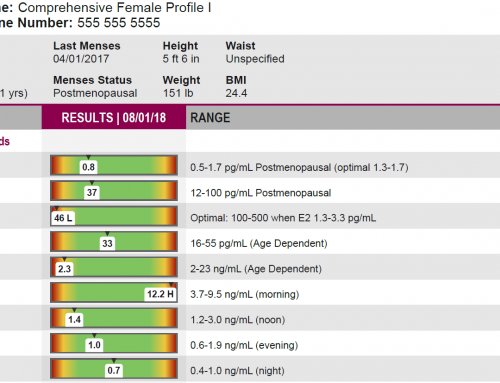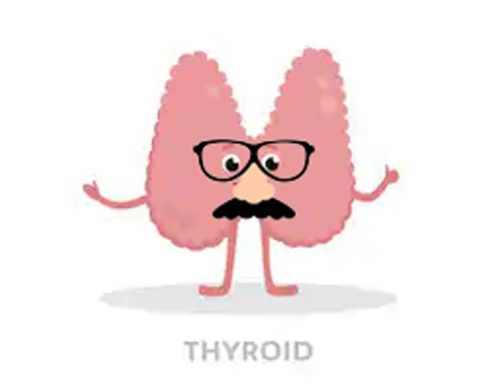by Dr. Tina Marcantel
Thyroid medications can range from synthetic to natural to bioidentical versions. So what are the differences? Dr. Tina Marcantel is a naturopathic doctor in Gold Canyon, Arizona, who also serves the East Valley cities of Gilbert, Mesa, Scottsdale, Tempe, Chandler, Apache Junction, Queen Creek, and the greater Phoenix area.
Prescription thyroid medications for hormone supplementation may be synthetic, natural (tablets made from pig thyroid gland) or bioidentical (made at a compounding pharmacy). So
what’s the difference, and are some better than others? The answer depends on the individual patient’s needs.
Levothyroxin, which is marketed under the brand names of Synthroid™, Levoxyl™, and others, is a synthetic drug that is prescribed by many doctors for their patients with diagnosed hypothyroid conditions. Levothyroxin contains T4, which is the storage form of thyroid that is produced by the thyroid gland. The reason this drug has traditionally been prescribed is that under proper conditions the body converts T4 to T3, which is the active form of thyroid that you need to relieve the symptoms of hypothyroidism. For some, levothyroxin works well as a treatment; for others, however, this “T4 only” medication may yield limited results.
The problem that too many doctors overlook is that many patients have difficulty converting the storage form (T4) to the active form (T3) and therefore still have many of the symptoms of hypothyroidism even though they’re taking a proper dose of medication to treat it. This treatment can be made more effective by adding a synthetic form of T3 called Cytomel. If Cytomel is not given in this case, the next step a doctor may take is to prescribe statins for the high cholesterol, antidepressants for the fatigue and depression, and a range of other drugs to try to address the symptoms that may simply be the result of a poorly treated thyroid condition.
Another option is natural thyroid medication made from desiccated pig glands and marketed under the brand names of Armour Thyroid™, Nature-Throid™, Westhroid™, and others. These medications contain both T4 and T3 and many patients respond very well to them. The dosage is easy to adjust as patients report their symptomology once they’ve begun treatment, and this medication has been an excellent help for millions of thyroid disease patients. One disadvantage to this medication is that the ratio of T3 to T4 is fixed–it isn’t possible to “tweak” one or the other to achieve an optimal balance for the patient. All of these brands are essentially the same, with the exception of the fillers or the binders used in their manufacture. With some patients I do avoid using animal thyroid if the patient has autoimmune diseases such as Hashimoto’s or rheumatoid arthritis because it can add to the inflammatory process if the patient’s antibodies react to the animal thyroid.
Compounding pharmacies can also make a synthetic bioidentical form of T3 and T4. These can be a great advantage for those who need to optimally balance the amounts of the thyroid hormones in their bodies because the medications can be specifically tailored to the patient’s needs. This is also a good option for those people who may need to have their medications adjusted frequently. For example, I’ve found that people with Hashimoto’s disease may need to change their dosages when they go through times of unusual stress. Under stress their bodies produce more TPO antibodies that can attack the thyroid gland and inhibit its proper function, causing the patient to exhibit signs of fatigue. They’ll need a higher dose of either T3 or T4 or both T3 and T4 when that happens and we can make that adjustment with the compounding pharmacy. The advantage of using a compounding pharmacy for this is that unlike Armour Thyroid, the individual amounts of T3 and T4 can be adjusted if needed.
To illustrate this, I have a patient with Hashimoto’s disease who is a school teacher. Most of the year she’s fine, but when fall comes around and it’s time to start the school year she starts getting very fatigued. The added stress of the new students usually means we have to adjust her medication to be able to function at her optimal level. Because the bioidentical hormones she uses can be tailor-made for her, we are able to quickly and easily adjust her medications to suit her needs.





